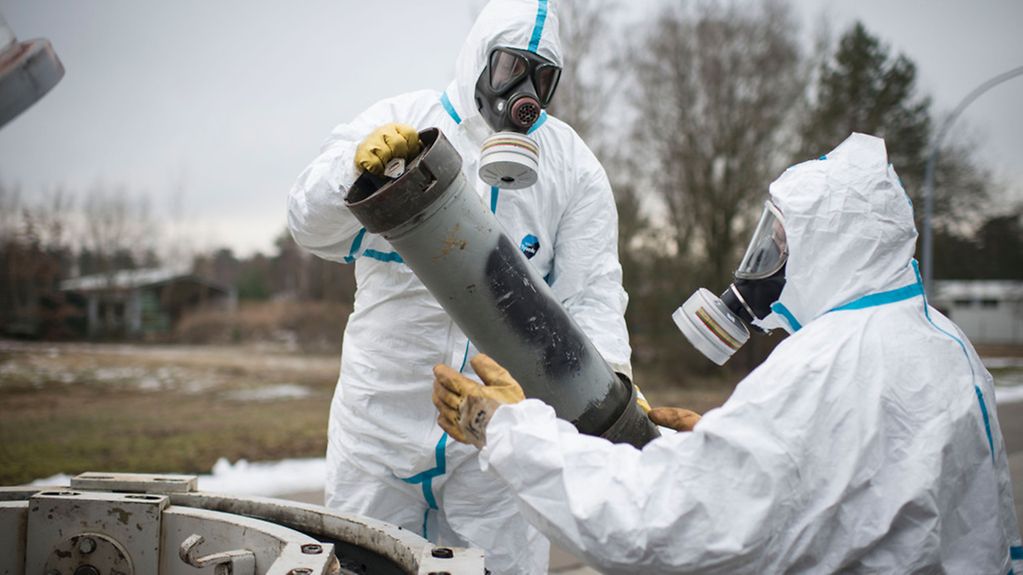Syria conflict
Destruction of Syrian chemical weapons has been successfully concluded. Residual material has been under way to Munster subject to German escort since Wednesday. A state-owned specialist firm awaits there to completely incinerate these substances.
2 min reading time

The waste material will be incinerated completely in the Lower Saxony town of Munster.
Photo: Joanna Nottebrock
Foreign Minister Steinmeier speaks of a "remarkable performance".
The international community concluded an exemplary operation, not least thanks to German support: Some 600 tons of hazardous chemicals have been neutralised aboard the US navy special ship "Cape Ray" in the Mediterranean. The substances came from the arsenal of the Syrian ruler Bashar al-Assad and could have been used for the production of sulphur mustard and sarin.
German Armed Forces as strong partner
The German Armed Forces escorted the high-tech "Cape Ray" during the operation. It continues its commitment by transporting the resulting waste material to Germany and Finland.
Around 370 tons of slightly toxic material will reach the Federal Republic of Germany in mid-September. The substances are to be finally incinerated in an environment-friendly manner at the GEKA, a body specialised in the disposal of chemical warfare agents and hazardous military waste. The company, head-quartered in the Lower Saxon city of Munster, is owned by the German federal government.
On request of the US government, the German frigate provided protection to the special ship from the beginning. Following the frigate "Augsburg", the "Schleswig-Holstein" is now escorting the "Cape Ray". The entire operation is based on UN resolution 2118 of 27 September 2013.
International community demonstrates strength
Foreign Minister Frank-Walter Steinmeier described the destruction of Syrian chemical weapons as "an important step and a remarkable performance". It showed what the international community was capable of "when it comes to an agreement". The mission was remarkable, among other things, because it was implemented much faster than expected. The destruction process started on 8 July; an operation period of 45 to 60 days was estimated.
The technical process is impressive as well: The substances were mixed with hot water and different additives in a closed system and thus rendered harmless. As a result, no substances are discharged into the sea or into the air.
Deterrent effect
US President Barack Obama also described the weapon destruction under the supervision of the Organisation for the Prohibition of Chemical Weapons (OPCW) as a milestone in the fight against weapons of mass destruction. The Pentagon's report on the mission's success sent "a clear message that the use of these horrible weapons has consequences and will not be tolerated by the international community."
As part of its commitment to destroy Syrian weapons of mass destruction, the Federal Republic of Germany has paid five million euros into the trust fund of the OPCW – Organisation for the Prohibition of Chemical Weapons. The German Armed Forces further trained inspectors of the OPCW and provided them with flights to Syria. In response to a German initiative, the EU promised to pay twelve million euros into the trust fund of the OPCW.